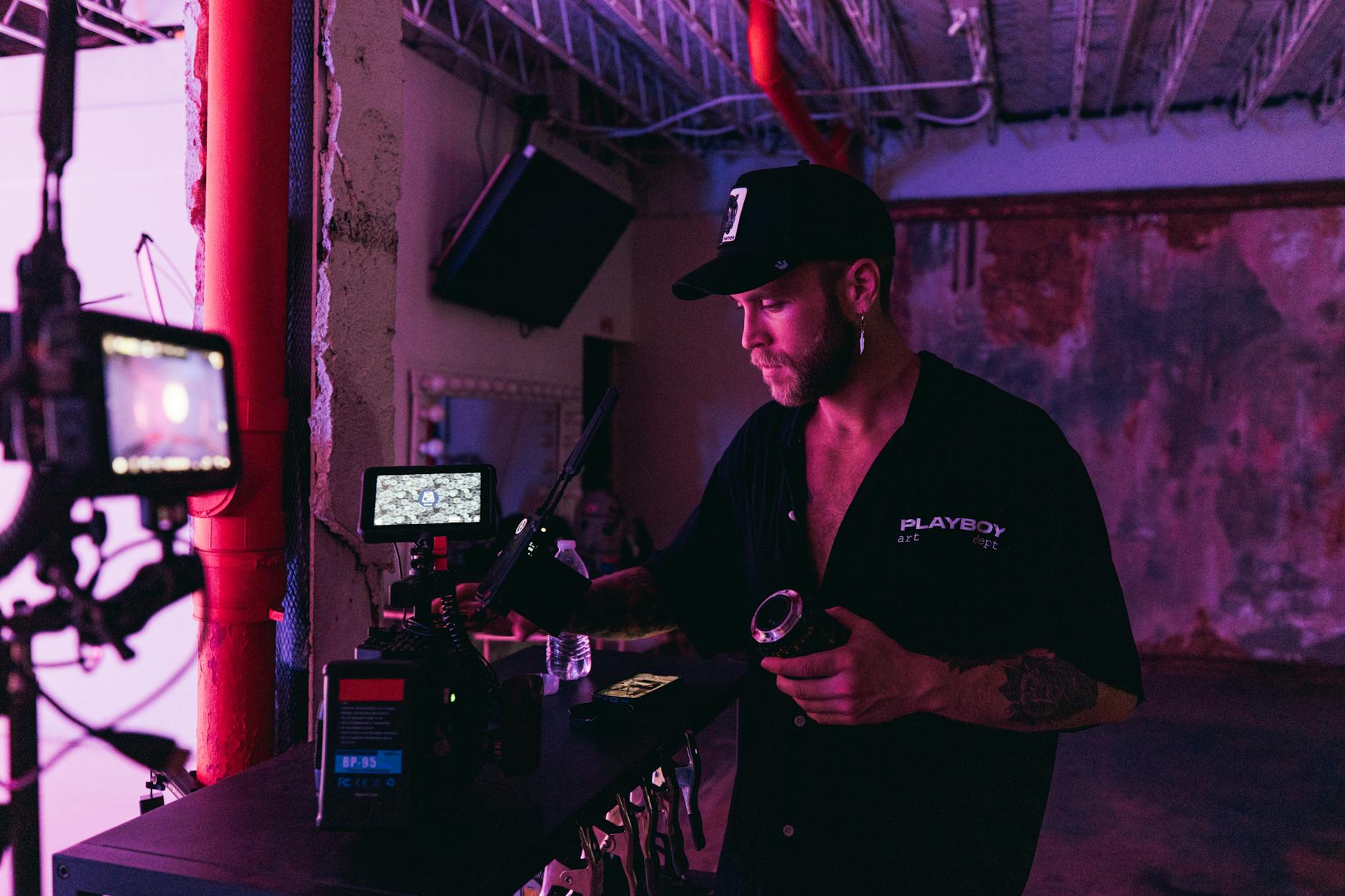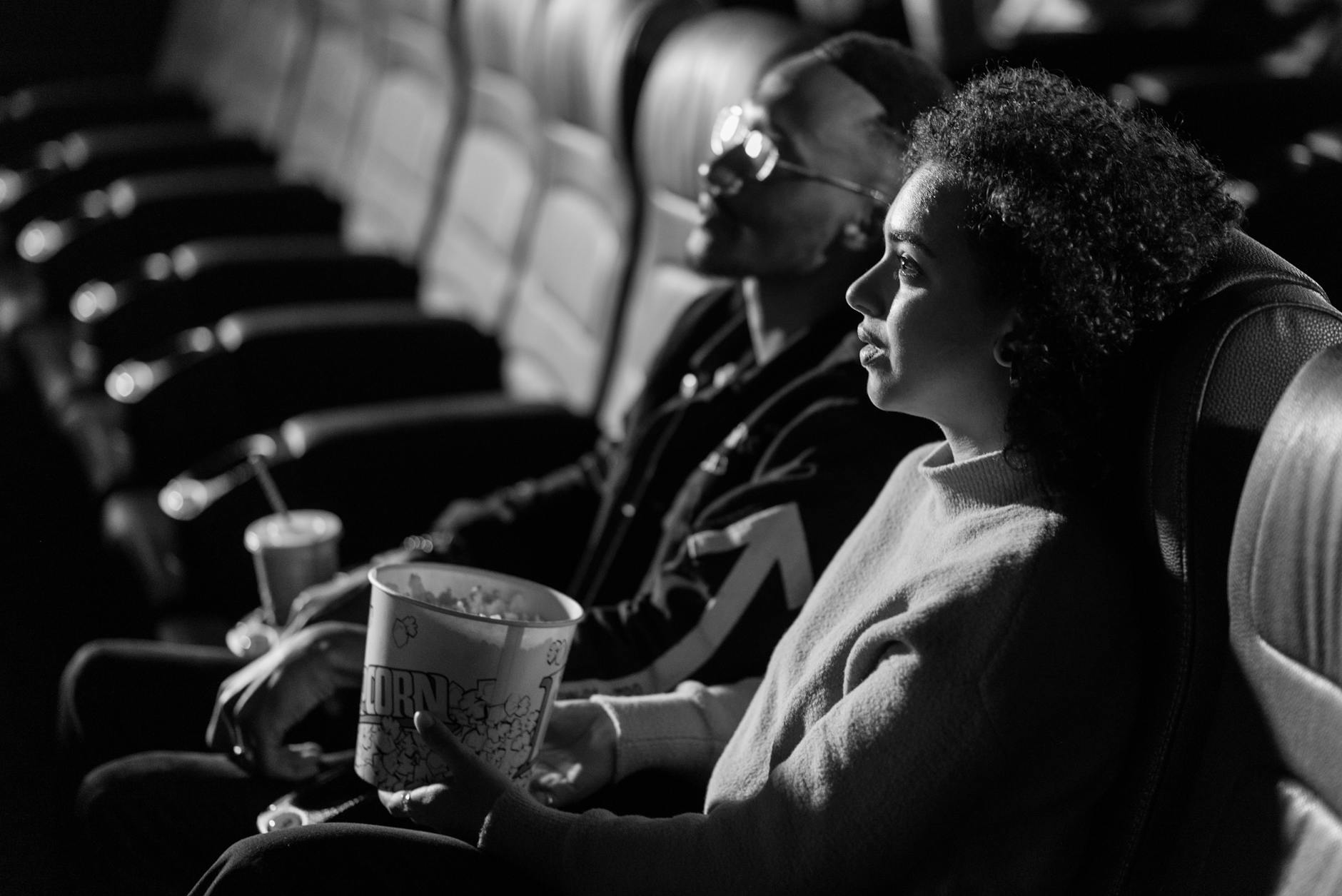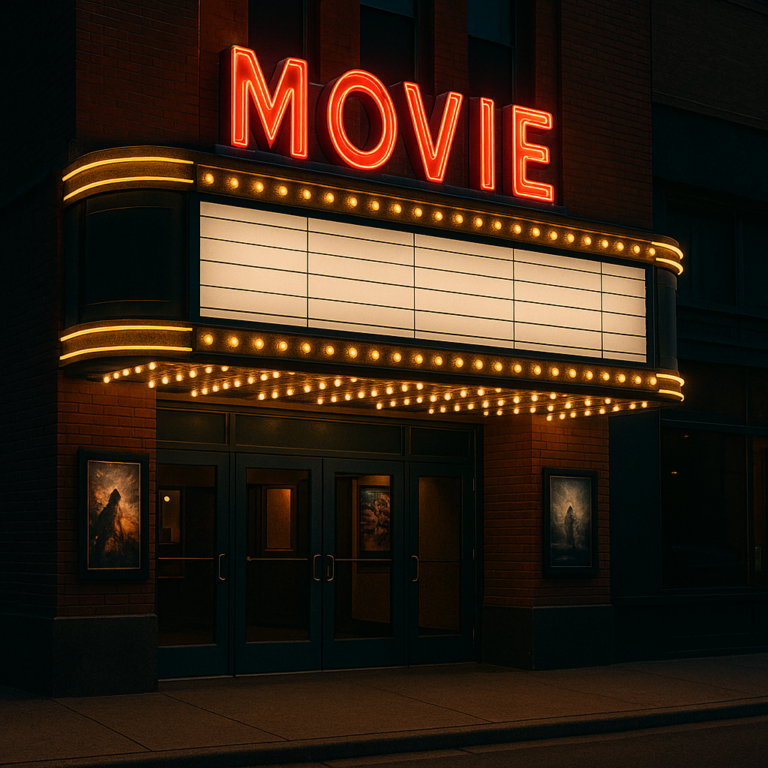The predictions for the future of cinema and filmmaking have never been more complex, contested, or consequential than they are today. The film industry stands at a crossroads where artificial intelligence, virtual production, streaming economics, and shifting audience behaviors are reshaping every aspect of how movies get made, distributed, and consumed. What emerges from this period of transformation will determine not only the business of entertainment but also the nature of storytelling itself for generations to come. This matters because cinema has served as the dominant visual storytelling medium for over a century, shaping culture, reflecting social change, and providing shared experiences across diverse populations.
The questions facing the industry touch on fundamental concerns: Will theatrical exhibition survive? How will AI change creative jobs? Can independent filmmakers still break through? What stories will get told when algorithms increasingly influence greenlighting decisions? These are not abstract concerns””they affect working professionals, aspiring creators, and audiences who care about the art form. By examining current trends, technological developments, and economic pressures, this analysis will provide a grounded perspective on where cinema is heading. Rather than utopian or dystopian predictions, the goal is to offer realistic assessments based on observable patterns and expert insights. Readers will gain understanding of the forces reshaping production, distribution, and exhibition, along with practical considerations for navigating this evolving landscape as creators, industry professionals, or engaged viewers.
Table of Contents
- What Will Cinema and Filmmaking Look Like in the Next Decade?
- How Artificial Intelligence Will Transform Future Filmmaking
- The Evolution of Cinema Distribution and Theatrical Exhibition
- Practical Predictions for Independent and Emerging Filmmakers
- Challenges and Concerns Facing the Future Film Industry
- Global Cinema and the Shifting Center of Filmmaking
- How to Prepare
- How to Apply This
- Expert Tips
- Conclusion
- Frequently Asked Questions
What Will Cinema and Filmmaking Look Like in the Next Decade?
The next ten years of cinema will likely be defined by a hybrid model that incorporates both theatrical and streaming distribution without treating them as mutually exclusive. The pandemic-era experiment of simultaneous releases largely failed to satisfy studios, theaters, or audiences, leading to a recalibration that preserves theatrical windows for certain types of content while accepting direct-to-streaming for others. Major franchises, event films, and prestige releases will continue to prioritize theatrical debuts, while mid-budget and genre films increasingly find their primary home on streaming platforms.
Production technology will become more accessible and more sophisticated simultaneously. Virtual production stages using LED walls and real-time rendering, pioneered by productions like “The Mandalorian,” will become standard for many types of filmmaking. These stages reduce location costs, provide greater creative control, and enable productions that would otherwise be prohibitively expensive. However, the technology requires significant upfront investment and specialized expertise, creating a potential divide between well-resourced productions and smaller independent projects.
- **Theatrical exhibition will contract but stabilize**: The number of screens worldwide will likely decrease by 15-25% from pre-pandemic levels, but remaining theaters will upgrade to premium formats and experiences that justify leaving home
- **Production budgets will bifurcate**: Blockbusters will continue commanding budgets exceeding $200 million while a growing segment of films will be produced for under $10 million using new technologies
- **Geographic diversification will accelerate**: South Korean, Indian, and other non-Hollywood productions will claim larger shares of global box office and streaming viewership

How Artificial Intelligence Will Transform Future Filmmaking
Artificial intelligence represents the most disruptive force in filmmaking since the transition from analog to digital. The technology is already being deployed across pre-production, production, and post-production, with applications ranging from script analysis and storyboarding to visual effects and color grading. The 2023 writers’ and actors’ strikes in Hollywood centered significantly on AI concerns, establishing initial guardrails while acknowledging that the technology cannot be uninvented. In post-production, AI tools are reducing the time and cost required for tasks that previously demanded armies of artists.
Rotoscoping, background replacement, de-aging, and even certain types of performance capture are becoming partially automated. Studios see efficiency gains; workers see job displacement. The reality will likely involve both””certain roles will diminish while new positions emerge for those who can effectively direct and refine AI outputs. The question is whether the new jobs will be as numerous or as well-compensated as those they replace.
- **Script development will incorporate AI analysis**: Tools that evaluate commercial viability, identify plot holes, and suggest improvements based on patterns from successful films will become standard, though creative decision-making will remain with humans
- **Performance synthesis will advance cautiously**: The ability to generate photorealistic performances raises profound ethical and legal questions that will require new frameworks for consent, compensation, and posthumous usage rights
- **Small productions will benefit disproportionately**: Independent filmmakers with limited budgets will gain access to visual effects and production capabilities previously reserved for major studios
The Evolution of Cinema Distribution and Theatrical Exhibition
Distribution models are undergoing their most significant transformation since the introduction of home video in the 1980s. Streaming has fundamentally altered audience expectations around access, pricing, and convenience. Yet theatrical exhibition has proven more resilient than early pandemic predictions suggested, with certain films continuing to generate massive box office returns when they offer experiences that justify the effort and expense of leaving home. The theatrical window””the period of exclusivity before a film becomes available through other channels””has compressed from the traditional 90 days to as little as 45 days for many releases. Some films skip theaters entirely, while others extend their exclusive runs based on performance.
This flexibility benefits studios but creates challenges for theater owners who struggle to program effectively and for audiences trying to understand where and when films will be available. Exhibition is responding by emphasizing premium experiences. IMAX, Dolby Cinema, 4DX, and ScreenX installations command higher ticket prices and attract audiences seeking something beyond what home viewing can provide. Luxury theaters with reserved seating, expanded food and beverage options, and smaller auditoriums are proving more sustainable than traditional multiplexes. The future likely belongs to fewer, better theaters rather than maximizing screen counts.
- **Dynamic pricing will become standard**: Ticket prices will increasingly vary based on showtimes, demand, and seat location, similar to airline and concert ticketing
- **Subscription models will expand**: Services like AMC Stubs A-List demonstrate audience appetite for theater subscriptions, providing predictable revenue for exhibitors and value for frequent moviegoers

Practical Predictions for Independent and Emerging Filmmakers
For filmmakers outside the studio system, the future presents both unprecedented opportunities and significant challenges. The barriers to creating professional-quality content have never been lower””cameras, editing software, and distribution platforms are accessible to anyone with modest resources. Yet the barriers to finding audiences have arguably never been higher, as an overwhelming volume of content competes for limited attention.
Success increasingly requires filmmakers to think beyond creation to encompass marketing, community building, and platform strategy. Social media presence, festival strategy, and direct audience relationships have become essential complements to filmmaking craft. The romantic notion of simply making a great film and having it discovered has always been more myth than reality, but the current environment makes intentional audience development non-negotiable.
- **Micro-budget features will remain viable**: Films produced for under $500,000 can still achieve profitability through strategic festival runs, territorial sales, and streaming acquisitions
- **Documentary filmmaking will thrive**: Lower production costs, strong streaming demand, and audience appetite for non-fiction content create favorable conditions for documentary creators
- **Hybrid release strategies will benefit independents**: Combining limited theatrical runs with streaming and transactional platforms can maximize both exposure and revenue
- **International co-productions will increase**: Tax incentives, diverse funding sources, and global streaming platforms make cross-border collaborations increasingly attractive
Challenges and Concerns Facing the Future Film Industry
The consolidation of media companies into a handful of global conglomerates raises concerns about creative diversity and market competition. When a small number of entities control production, distribution, and exhibition, independent voices face structural disadvantages in reaching audiences. The streaming wars have already produced casualties, with services shutting down or merging and content being removed from platforms entirely. Labor issues will remain contentious as technology continues disrupting traditional roles. Below-the-line workers””the technicians, craftspeople, and crew members who physically make films””face particular uncertainty as virtual production, AI-assisted workflows, and remote collaboration change the nature of their work.
Union contracts negotiated in 2023 and 2024 attempted to address some concerns, but the pace of technological change may outstrip the ability of traditional labor relations to adapt. Algorithm-driven content decisions present subtle but significant risks to creative diversity. When greenlight decisions are influenced by what performed well previously, innovative and challenging work may struggle to find support. Streaming platforms optimize for engagement metrics that favor familiar genres and proven intellectual property over original concepts. The economic rationality of these decisions does not eliminate their cultural costs.
- **Theatrical closures may create film deserts**: As unprofitable locations close, significant populations may lose reasonable access to theatrical exhibition
- **Archival and preservation face new challenges**: Digital formats require ongoing maintenance, and content removed from streaming platforms may become effectively inaccessible

Global Cinema and the Shifting Center of Filmmaking
Hollywood’s dominance of global cinema, while far from over, is diminishing as other regions develop robust production ecosystems. South Korea, India, Nigeria, and China each produce hundreds of feature films annually, with increasing quality and international appeal. The success of “Parasite,” “RRR,” and Korean streaming content demonstrates that audiences will embrace non-English language work when it offers compelling storytelling.
This diversification benefits global audiences who gain access to perspectives and styles outside the American mainstream. It also creates opportunities for talent and stories that would never have found their way into Hollywood productions. The risk lies in each market becoming siloed, with algorithms directing audiences toward domestic content rather than exposing them to international work. Platform curation and deliberate programming can counteract this tendency, but the economic incentives may not always favor such efforts.
How to Prepare
- **Follow industry publications and analysis**: Trade publications like Variety, The Hollywood Reporter, and Deadline provide daily coverage of business developments, while outlets like IndieWire and Film Comment offer perspective on independent and international cinema. Understanding the business context helps interpret creative trends and identify opportunities.
- **Study emerging technologies firsthand**: Whether through online tutorials, workshops, or hands-on experimentation, developing familiarity with virtual production, AI tools, and new distribution platforms provides practical understanding that abstract reading cannot match. Even basic proficiency creates meaningful context for evaluating claims about technological impacts.
- **Engage with diverse cinema globally**: Watching films from different countries, eras, and traditions builds appreciation for the breadth of cinematic possibility and provides reference points for evaluating new developments. The future will draw on this entire history, not just recent commercial hits.
- **Build and maintain professional networks**: The film industry has always operated through relationships, and this will only intensify as traditional gatekeepers lose power and direct connections become more valuable. Festival attendance, online communities, and collaborative projects all contribute to networks that create opportunities.
- **Develop adaptable skill sets**: Rather than training narrowly for specific roles that may change or disappear, cultivate transferable skills in storytelling, visual communication, project management, and technical problem-solving that will remain valuable regardless of how the industry evolves.
How to Apply This
- **For aspiring filmmakers**: Start creating with available resources rather than waiting for ideal conditions. Use accessible technology to develop craft, build portfolios, and identify your distinctive voice before seeking larger budgets or platforms.
- **For industry professionals**: Inventory your current skills against likely future demands. Identify areas where technology may enhance or threaten your role, and proactively develop capabilities that position you for emerging opportunities rather than defending obsolete positions.
- **For film enthusiasts and critics**: Expand viewing habits to include work outside comfort zones””different genres, countries, and eras. Engage with the business and technology of filmmaking, not just the finished products, to develop informed perspectives on industry developments.
- **For investors and entrepreneurs**: Look for opportunities at the intersection of technology and content, particularly solutions that serve underserved segments of the market. Mid-budget production, international distribution, and creator tools represent areas where innovation may create significant value.
Expert Tips
- **Prioritize storytelling fundamentals over technical novelty**: Every new technology generates excitement that can distract from the unchanged core of cinema””compelling characters, meaningful conflict, and emotional resonance. Master these before chasing the latest tools.
- **Build direct audience relationships**: Platforms and gatekeepers change; audiences remain. Cultivating direct connections through newsletters, social media, or community events creates assets that survive industry disruptions.
- **Understand streaming economics realistically**: The lack of transparency around streaming viewership and compensation makes informed decisions difficult. Seek multiple revenue streams rather than depending entirely on platform deals with opaque terms.
- **Preserve and archive your work carefully**: Digital formats require active maintenance. Ensure that important work exists in multiple formats and locations, with clear metadata and documentation that enables future access.
- **Stay skeptical of hype cycles**: The film industry regularly declares revolutions that fail to materialize as predicted. 3D, VR, and blockchain have all been proclaimed transformative without delivering on inflated expectations. Evaluate new technologies based on demonstrated value rather than promotional claims.
Conclusion
The future of cinema and filmmaking will be shaped by the interaction of technological capability, economic incentive, and human creativity. None of these factors operates independently, and predictions that emphasize one while ignoring the others inevitably miss the mark. What seems certain is that change will continue accelerating, that some current institutions and practices will not survive, and that new forms and opportunities will emerge that we cannot fully anticipate from our present vantage point. For those who care about cinema””whether as creators, professionals, or engaged audiences””the appropriate response is neither uncritical enthusiasm nor defensive pessimism.
The technologies and economic models transforming the industry are tools that can serve various ends depending on how they are deployed and governed. Advocating for policies and practices that preserve creative diversity, fair compensation, and broad access represents meaningful action. Continuing to create, support, and engage with films that challenge and inspire maintains the cultural vitality that makes cinema worth preserving. The future will be what participants in the film ecosystem collectively make of it, and that remains a reason for cautious optimism despite genuine challenges ahead.
Frequently Asked Questions
How long does it typically take to see results?
Results vary depending on individual circumstances, but most people begin to see meaningful progress within 4-8 weeks of consistent effort.
Is this approach suitable for beginners?
Yes, this approach works well for beginners when implemented gradually. Starting with the fundamentals leads to better long-term results.
What are the most common mistakes to avoid?
The most common mistakes include rushing the process, skipping foundational steps, and failing to track progress.
How can I measure my progress effectively?
Set specific, measurable goals at the outset and track relevant metrics regularly. Keep a journal to document your journey.


